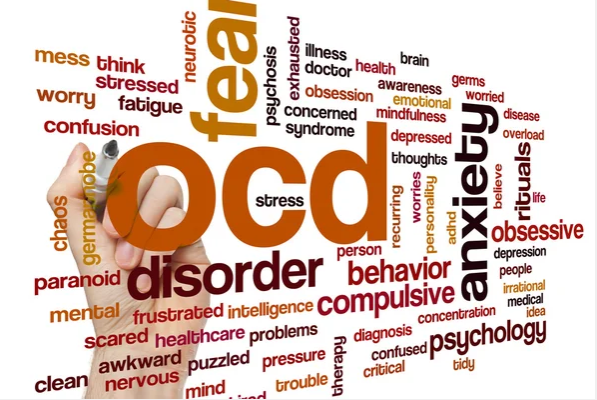Understanding what OCD feels like can be difficult if the bulk of your knowledge about this disorder comes from television, films, or other media.
Unfortunately, obsessive-compulsive disorder (which is the full clinical term for OCD) is often portrayed for laughs or overly dramatic effect in movies and TV shows. This has resulted in widespread misinformation about what OCD feels like.
What Does OCD Feel Like?
There’s no single, definitive answer to the question, “What does OCD feel like?” As is the case with just about every mental and behavioral health disorder, OCD’s impact on an individual’s life can vary widely from person to person.
Factors such as a person’s age, their gender, the types of symptoms they experience, and whether or not they have a co-occurring mental health disorder can all influence what OCD feels like to them.
In general terms, though, two feelings that are common among people who have OCD are emotional pain and a perceived lack of control. The thoughts and behaviors that are associated with OCD are distressing to the people who have the disorder.
People who aren’t familiar with the signs and symptoms of obsessive-compulsive disorder can mistakenly assume that OCD feels like a simple desire to have an organized house or an understandable worry that they forgot to unplug the toaster.
In reality, people who have OCD may feel trapped by unrelenting compulsions that force them to spend hours engaged in repetitive tasks, or they may experience deep emotional anguish due to troubling thoughts that they’re unable to dismiss from their mind.
Signs & Symptoms of OCD
The symptoms of OCD fall into one of two categories: obsessions and compulsions. Obsessions usually involve intrusive thoughts or feelings. Compulsions typically involve observable actions.
Some people who have OCD only develop obsessions, others only have compulsions, and still others have both obsessions and compulsions.
Obsessions
The following are examples of OCD symptoms that are classified as obsessions:
- Powerful fear of contamination
- Persistent worry that you’ll hurt yourself or someone else
- Unwanted, distressing thoughts related to sex
- Overwhelming belief that certain words, colors, or numbers are lucky or unlucky
- Fear that you’ll accidentally say something perverse, obscene, or blasphemous
Compulsions
These are some of the OCD symptoms that fall into the category of compulsions:
- Repeating certain words, numbers, sounds, or movements over and over again
- Checking several times to make sure you’ve locked a door or unplugged an appliance
- Showering multiple times per day or washing your hands far more often than is necessary
- Insisting that items on your desk, in your room, or in another space are placed in precise, perfectly aligned positions
- Adhering to an extremely rigid set of beliefs or behavior patterns
As noted in the previous section, two common elements that unite all OCD symptoms are that they are sources of considerable distress for the person who experiences them and that the individual feels they have no control over these thoughts and actions.
For example, wanting to have a neatly organized desk is not a symptom of OCD – but feeling that you are physically incapable of leaving your office until everything is perfectly aligned may be a sign of obsessive-compulsive disorder.
What Causes OCD?
Researchers have identified several factors that can increase a person’s risk for developing obsessive-compulsive disorder, but they have not located one universal cause of OCD.
According to the fifth edition of the Diagnostic and Statistical Manual of Mental Disorders (DSM-5), the following are examples of possible genetic and environmental risk factors for OCD:
- Having a parent or sibling who has OCD
- Inheriting certain genetic characteristics or personality traits
- Being physically or sexually abused during childhood
- Enduring other forms of trauma during childhood
- Exposure to certain infectious agents during childhood
- Developing post-infectious autoimmune syndrome
A person’s gender can also influence their experience with OCD. Boys and men are more likely to first experience OCD symptoms at a younger age. Girls and women are more likely to have a co-occurring tic disorder.
Types of Treatment for OCD
Various types of treatment for OCD have proved effective at helping people learn to manage their symptoms and exert greater control over their thoughts and actions.
Depending on the types of symptoms a person has been experiencing and the ways that OCD has impacted their life, the following types of OCD treatment may be beneficial:
- Residential treatment: The residential option may be best for people who have been experiencing severe symptoms and who need round-the-clock care.
- Outpatient programming: At the outpatient level, people can take part in treatment for OCD and still have time to work, go to school, and engage in other independent pursuits.
- Exposure and response therapy: At both the residential and outpatient levels, exposure and response therapy can help people develop healthier ways of responding to intrusive thoughts and urges.
- Medication: Certain prescription medications can provide considerable relief for people who have OCD.
- Support groups: Having an ongoing connection with others who share similar struggles and are working toward common goals can make a world of difference.
To find the right type of OCD treatment, it’s important to complete a thorough assessment and be diagnosed by a qualified healthcare provider. Once your doctor or treatment team understands the full scope of your needs, they’ll be best prepared to provide the type and level of care that’s right for you.
OCD Treatment in Nashville, TN
The thoughts and urges that are characteristic of OCD can be overwhelming. But they can also be treated. When you get the OCD treatment you need, you can experience a considerable improvement in both the substance and quality of your life. Arbor Wellness in Nashville, Tennessee, is a trusted source of superior care for OCD. Contact us today to learn how we can help.










